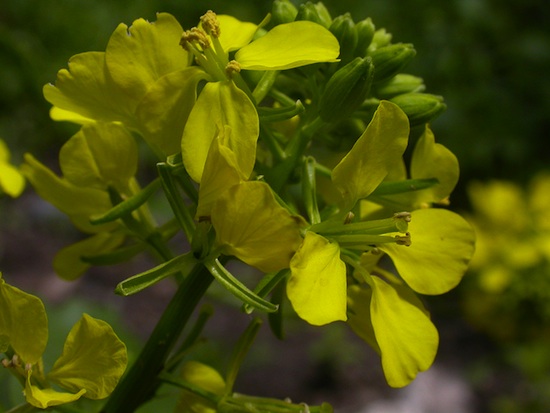Plants Send Chemical SOS When Butterflies Lay Eggs, Call In Wasp Cavalry
The black mustard plant, Brassica nigra, looks about as capable of defending itself as most other pretty yellow flowers. That is to say, not very capable of defending itself at all, as all it really has going for it are the abilities to smell nice and look pretty. Sometimes, though, that’s all you need. The innocent looking little flower makes those abilities into a set of secret weapons against its mortal nemesis, the butterfly. When a butterfly leaves an egg on one of its leaves, though, the plant sends out a series of chemical signals — one to repel butterflies, preventing it from becoming a breeding ground for its own predators, and another to call in the cavalry, alerting wasps that prey on caterpillars that supper is ready.
Black mustard is used as a spice and a source of cooking oil, and is also a favorite home and snack for caterpillars of the Large White butterfly. When Large Whites lay an egg on a black mustard plant, the plant sends out a chemical SOS that attracts parasitic wasps looking for a meal while also driving away other Large Whites.
That’s not black mustard’s only self-defense trick, though the other tactic at its disposal is rather more drastic. When eggs are laid on a leaf, the plant will develop — seemingly of its own accord — a necrotic zone on the leaf where eggs have been deposited. This sets the leaf to withering, in the hopes that it will lose structural integrity and drop off, leaving the eggs on the ground with it — a selective amputation of one limb to save the whole of the plant from being devoured.
You can read the full study, released today, in the journal PLoS ONE.
(via Science Daily)
- As far as plant self defense goes, we’ve seen better
- At least they’re still working, unlike these lazy sundews
- Frankly, this is becoming a little more personality than we want plants to have
Have a tip we should know? tips@themarysue.com
